
Front_Office_Operations
.pdf
Chapter 7– Security and safety responsibilities
Health and safety aspects of hotels
2.4First Aid continued…
●Keep the injured person quiet, still (do not move an injured person unless absolutely necessary to ensure their safety) and warm; cover any open wounds with a sterile dressing from the first aid box - and call for assistance from a qualified first aider.
Step 5 : Take careful note of what happened immediately before and during the emergency (what the casualty was doing; how (s)he looked; whether (s)he was unconscious and for how long etc), this may be helpful to medical staff.
Step 6 : Stay with the sick or injured person until assistance arrives. Follow the instructions of the first aid officer and/or duty manager in regard to calling for further assistance (e.g.. the ambulance service).
Step 7 : Write notes of what happened, as a preparation for filling out the hotel's accident or incident book, reports to management and/or incident reports required by law (which we discuss later).
www.cthresources.com |
Page 391 |
|
www.cthawards.com |
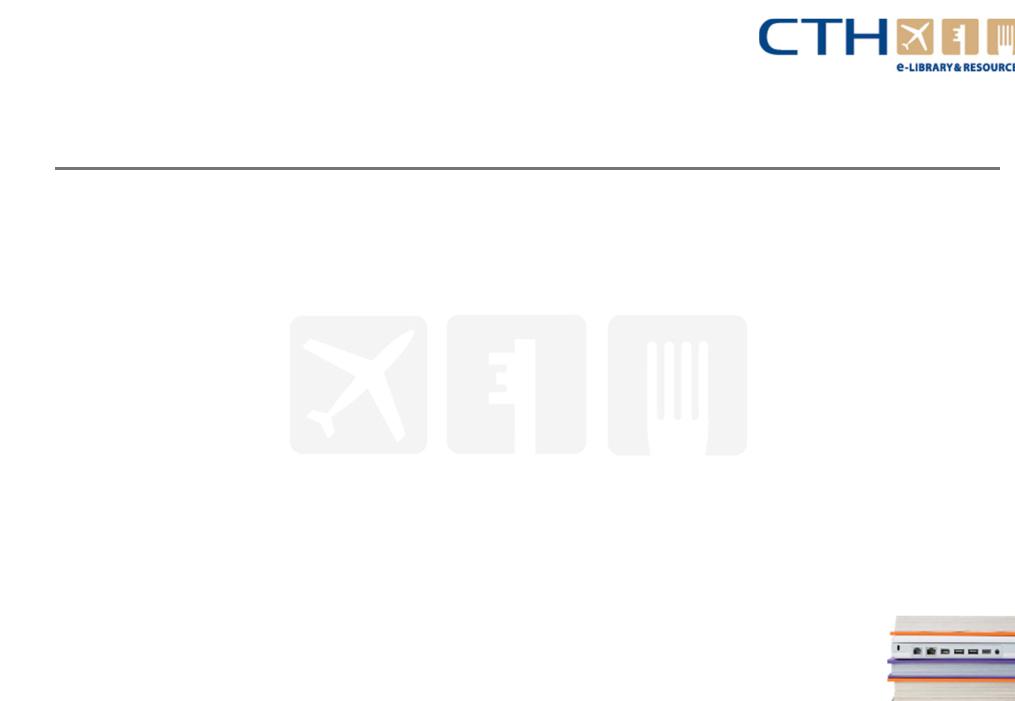
Chapter 7– Security and safety responsibilities
Health and safety aspects of hotels
2.5 Emergency evacuations
There should be clear procedures for handling major incidents such as fire, bomb threats, or the discovery of unsafe structures or substances in the building, which may necessitate the affected area – or the whole premises – being evacuated.
Evacuations are generally notified and managed by a safety officer, fire officer or chief warden, who should have some sort of formal training, and are responsible for making sure that everyone known to be in a building at the time of evacuation
(a)gets safely out of the building
(b)can be accounted for.
www.cthresources.com |
Page 392 |
|
www.cthawards.com |
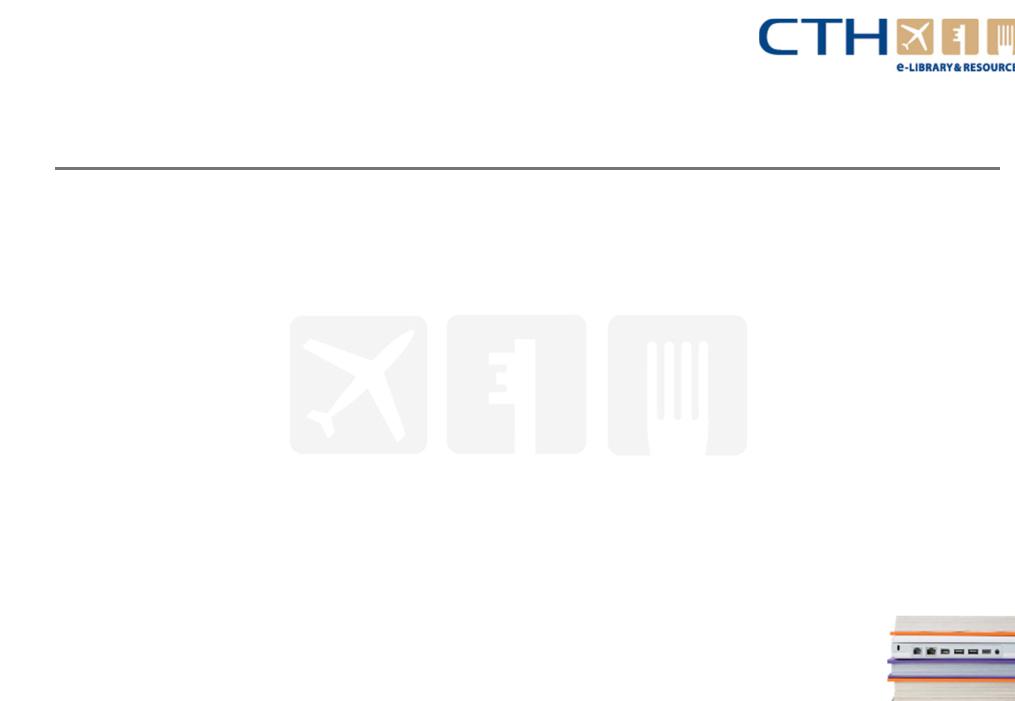
Chapter 7– Security and safety responsibilities
Health and safety aspects of hotels
2.5 Emergency evacuations continued…
Once the decision to evacuate is made:
●The alarm should be sounded, to warn all occupants of the building that an emergency has arisen and that evacuation procedures are being put into action. Staff should also make themselves available to issue personal reassurance and Instructions to guests in public areas, where possible, and to give assistance to any guests with mobility problems.
●Relevant emergency services (e.g.. the fire brigade, policy or terrorist response unit) should be called by the designated person.
●Consistent with safe and swift departure, staff may carry out any containment measures (e.g.. closing windows and doors, switching off equipment and machinery) and security measures (e.g.. placing cash and valuables in safes). The receptionist or other designated person should secure and remove the current guest list: this will be used to 'call the roll' to ensure that no-one is left behind in the building.
www.cthresources.com |
Page 393 |
|
www.cthawards.com |

Chapter 7– Security and safety responsibilities
Health and safety aspects of hotels
2.5 Emergency evacuations continued…
●The area will be evacuated, using the quickest and safest routes (e.g.. not using lifts in the event of fire): staff and guests should be clearly advised not to linger or return for personal belongings. There may be a Floor Warden positioned on each floor of the hotel, to check that each floor is 'cleared‘ - and to note which rooms are not cleared (e.g.. if a guest refuses to leave), so that emergency services can be notified.
●Everyone should assemble in the designated assembly point(s) outside the hotel, where the roll can be called, and information about persons unaccounted for given to emergency personnel. Only when the fire or safety officer declares an 'all clear’ should people return to building.
www.cthresources.com |
Page 394 |
|
www.cthawards.com |

Chapter 7– Security and safety responsibilities
Health and safety aspects of hotels
2.6 Incident reporting
Employing organisations with more than ten staff must by law keep an accident book, in which can be recorded all details of accidents and events which have occurred on the premises, which required treatment or advice. These details could be used as evidence in a legal action (e.g.. for compensation), so details must be noted systematically and accurately when incidents occur, and retained for a period of three years after the date of the last entry in the book.
In the UK, under the Reporting of Injuries, Diseases and Dangerous Occurrences Regulations (RIDDOR) 1995, certain accidents, dangerous occurrences and cases of disease must also be notified to the relevant authorities: the environmental health department of the local authority, or the Health and Safety Executive. If an accident results in death or major injury, or the hospitalisation of a member of the public; if there is a 'near miss' that might have caused such injuries (e.g.. a fire or explosion); or if there is a case of poisoning, legionnaires disease or other health emergency; the relevant authority will need to be notified immediately by phone, and a detailed RIDDOR report form completed.
www.cthresources.com |
Page 395 |
|
www.cthawards.com |

Chapter 7– Security and safety responsibilities
Health and safety aspects of hotels
Figure 7.2: Accident book
Accident book
|
|
Full name, address and |
Signature of injured |
|
Date and |
|
|
|
|
occupation of injured |
person or other person |
Date when |
time of |
Room/place in which |
Cause and |
|
|
person |
making this entry |
entry made |
accident |
accident happened |
nature of injury |
|
1 |
|
|
|
|
|
|
|
|
|
|
|
|
|
|
|
|
|
|
|
|
|
|
|
2 |
|
|
|
|
|
|
|
|
|
|
|
|
|
|
|
|
|
|
|
|
|
|
|
3 |
|
|
|
|
|
|
|
|
|
|
|
|
|
|
|
|
|
|
|
|
|
|
|
4 |
|
|
|
|
|
|
|
|
|
|
|
|
|
|
|
|
|
|
|
|
|
|
|
5 |
|
|
|
|
|
|
|
|
|
|
|
|
|
|
|
|
|
|
|
|
|
|
www.cthresources.com |
|
Page 396 |
|
|
|||
|
|
|
www.cthawards.com |
|
|
||
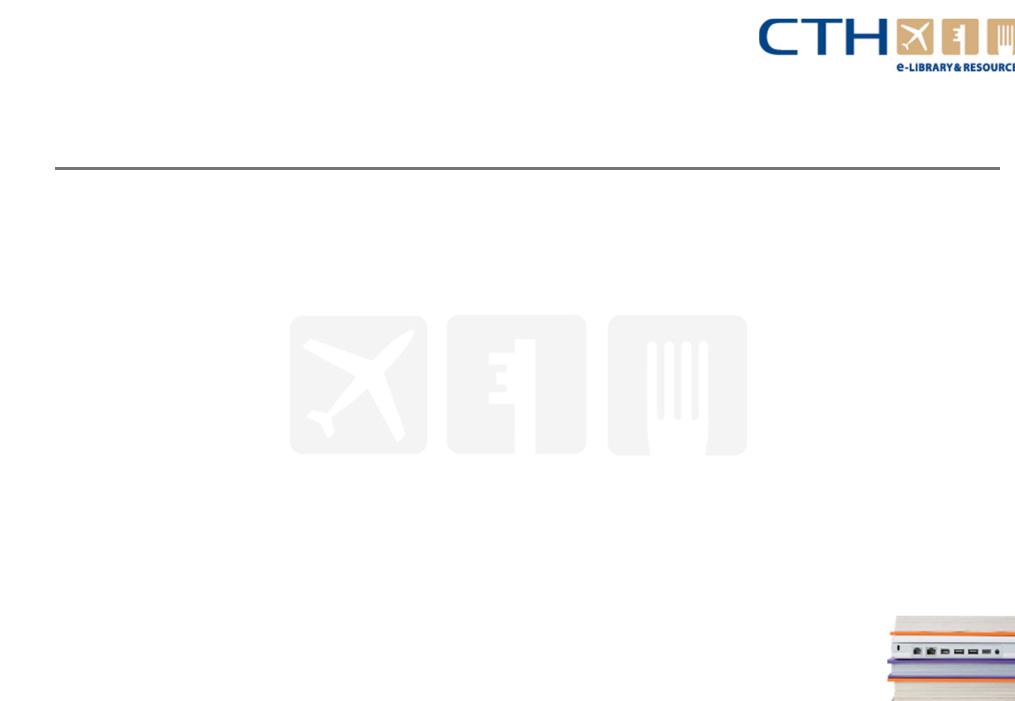
Chapter 7– Security and safety responsibilities
Security aspects of hotels
3.Security aspects of hotels
3.1Dimensions of security
3.2General principles of security
3.3Who is responsible for security in a hotel?
3.4General hotel security procedures
3.5Suspicious packages or bags
www.cthresources.com |
Page 397 |
|
www.cthawards.com |
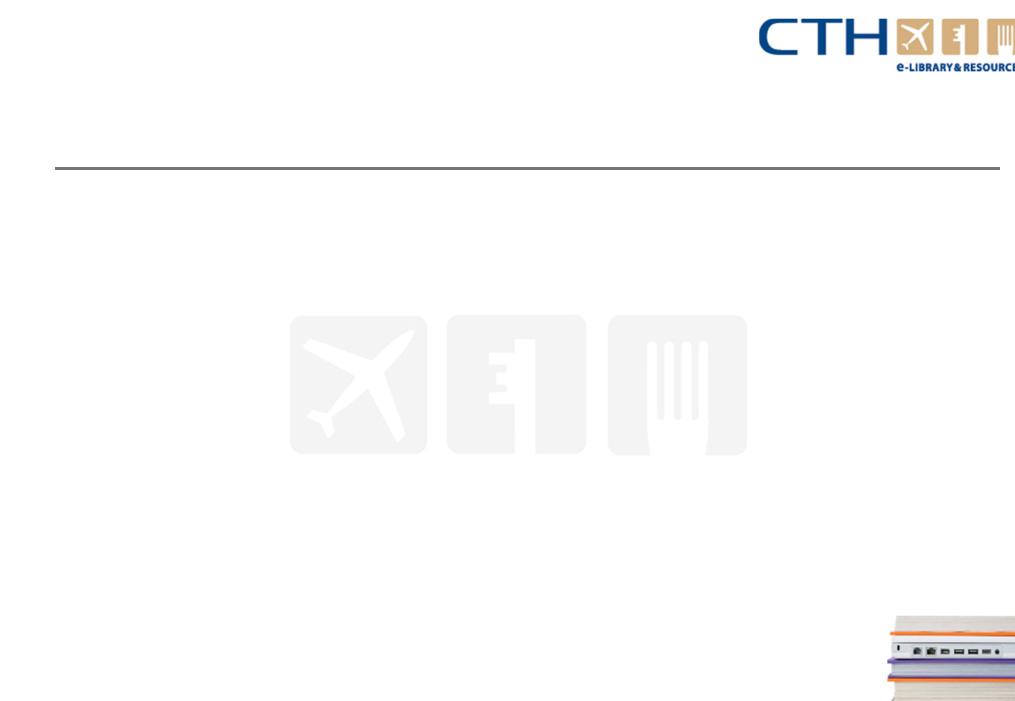
Chapter 7– Security and safety responsibilities
Security aspects of hotels
Security, like health and safety, is important for a number of reasons
●First of all, to protect guests, employees and others on the premises from danger, fear or loss
●To protect the assets of the hotel (money, fixtures and fittings - and reputation) and save the costs arising from their loss or damage
●To prevent or minimise disruption to normal operations and guest service (which may affect guests' experience and/or reflect badly on the hotel)
●To protect confidential and sensitive information from unauthorised access and its potential consequences.
www.cthresources.com |
Page 398 |
|
www.cthawards.com |
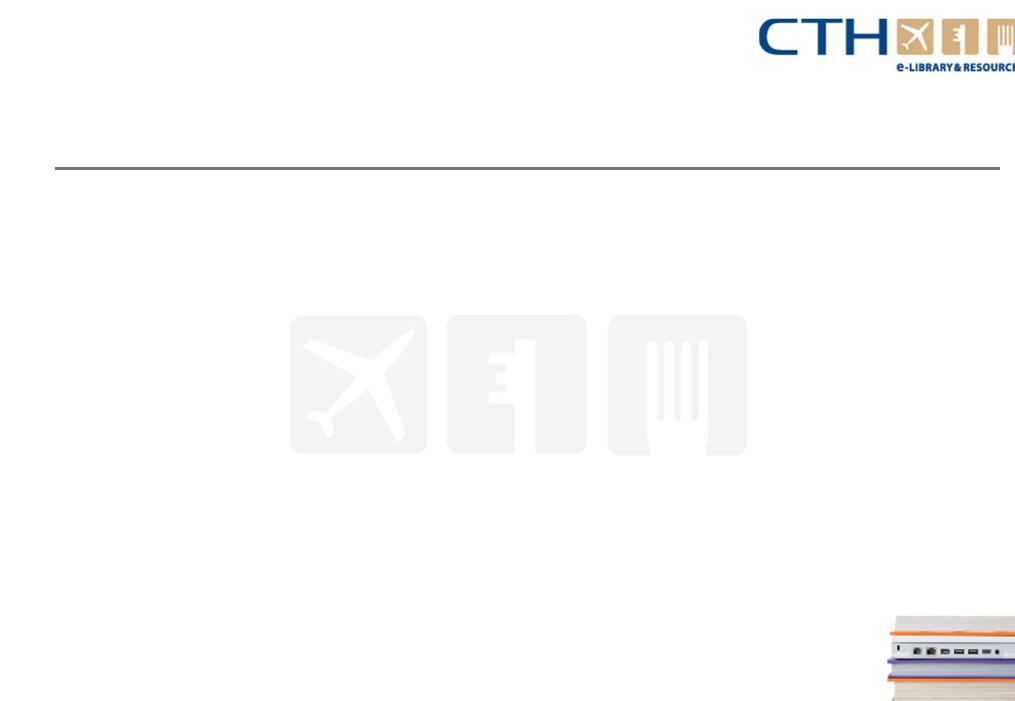
Chapter 7– Security and safety responsibilities
Security aspects of hotels
3.1 Dimensions of security
Security of people
Attention will have to be given to protecting people - staff, guests and visitors - from:
●Physical harm or threat: e.g.. from mugging or assault, or terrorist threats
●Invasion of privacy: e.g.. from room invasion, having their personal property handled or scrutinised without permission, or having their 'business' examined or publicised. VIP guests in the hotel may be particularly sensitive to invasion of privacy (e.g.. if the hotel fails to protect them from press intrusion), but there may be other sensitive issues: front office staff should not question or divulge any personal details about guests unnecessarily.
●Stress and fear: e.g.. from intimidating, abusive or disruptive behaviour by others, or perceived lack of security/safety and so on.
www.cthresources.com |
Page 399 |
|
www.cthawards.com |
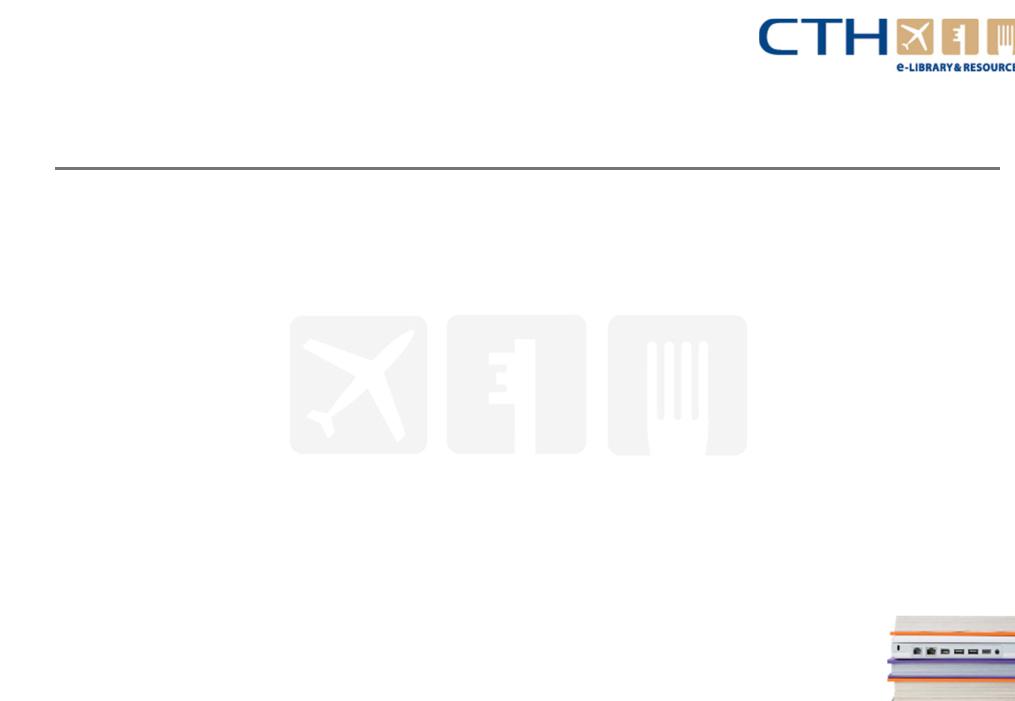
Chapter 7– Security and safety responsibilities
Security aspects of hotels
3.1 Dimensions of security
Security of property
Attention will have to be given to protecting:
●The hotel building (e.g.. by fire prevention and protocols for handling bomb threats)
●The fixtures and fittings of the hotel, which may be subject to theft and/or wilful or accidental damage
●The belongings of guests and staff, which may be vulnerable to theft or damage
●Cash and other financial assets of the hotel, which may be vulnerable to various forms of theft and fraud
Security of data
www.cthresources.com |
Page 400 |
|
www.cthawards.com |
